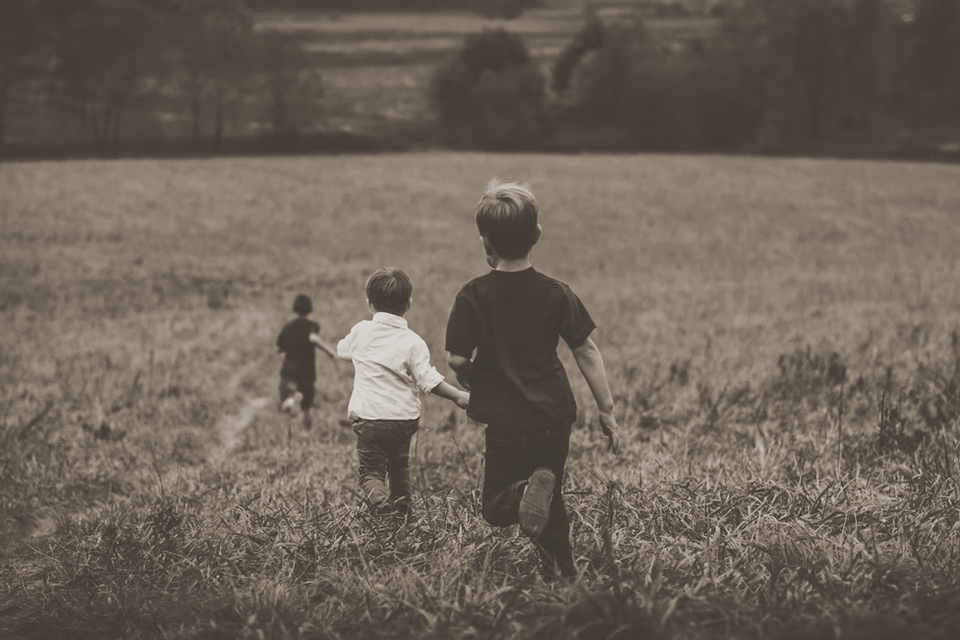Every day on the way home from school I ask my 7-year-old the highlight of his day. Yesterday, it was “playing ‘vaccine’ with my friends.” It turned out that “playing vaccine” meant someone was “giving out the vaccine” and people would refuse to get it and the vaccinator had to try to give it to them by chasing them. So basically, “tag” but skinned for 2022.
For a moment, I was deeply saddened by this – that the conversation around vaccinations had become such a part of life for a child, it had osmosed into the most quotidian of schoolyard games.
But then I began to find it inspiring. Here was this modern fact of life so difficult for those of us who did not grow up with it, and our children have turned it into a game.
I know many children, if not most, are clearly suffering a variety of psycho-emotional issues from the fallout of the pandemic, so this is by no means to say the effects of the pandemic on them is “water off their back.”[1]
But it did provide a stark demonstration of two concepts I remember from studying cognitive science.
First, and less interestingly, it was a beautifully concrete example of the purpose of play. Here was a new take on the oldest of games updated to model, learn, and build a foundational understanding of the adult world of the early 2020s.
Second, and possibly, more importantly, it was a valuable lesson in relativity. Many studies have shown that, above a certain support level for our basic needs (“need gratification”), it is not our absolute situation in life that determines our happiness and ability to cope, but the relativity of our current position to our former one (and/or other ones).[2][3][4]
For our children, having known a reality in which there is only debate about the necessity of vaccination, it is not something to be taken seriously, but, instead, ordinary enough to be “gamified.” One can say that these children are too young to understand the implications of the debate about vaccination or that children have played at “war” since the dawn of time, so of course, their games are not indicative of how they might feel about something when they are older. And of course, both of these things are true.
But what struck me was the contrast between my sadness at realizing my son lived in a world where “vaccine” was a game at all and the fact that it was a game to him. Our two Weltanschauungen were so different, that to me this was not something to joke about, and to him, it was a game. Whether that view of his might change when he is older and understands
the issues better is precisely the point. It is our view of the present in the context of our past that determines our state of mind about the present.
Again, this is old news in philosophy and in cognitive science, but I think it’s important to be reminded of it frequently precisely because we are programmed to forget it. It is so hard sometimes to keep perspective on our lives if we are privileged enough to be healthy, relatively wealthy, and not in a warzone. In many ways, the fact that we are built to always strive for a better existence is a good thing. Without it, we would never be ambitious enough to improve our lives. But that means we must always consciously manage the flip side of this instinct – that when things are not comparatively as “good” as they were in the past, it does not necessarily mean they are, in some objective sense, “bad.”
In a way, it’s not surprising that achieving this perspective takes some effort. We can only see what we see from where we stand. When we look up from a valley, it requires tremendous conscious effort to imagine what we would see if we looked down at ourselves from the mountain peaks above. If we have never visited those peaks, this task would be almost impossible and, even if we have, our imagination will still be a poor, disjointed copy of reality. But this is, nonetheless, what we must always ask of ourselves when things are difficult.
Sometimes, of course, the answer comes back that we are, in fact, at the lowest point in our lives. That we have never been in a valley so deep. This essay is not about those moments because they require a different kind and methodology of resilience.
This essay is about distinguishing the times in our lives when we do not need to find the “sterner stuff” within ourselves. Because, surprisingly often, we are, in fact, visiting a ”local minimum” – we just need to view the topography from slightly further away…and perhaps re-format recent events in our lives as a schoolyard game.
References
[1] https://www.usnews.com/news/health-news/articles/2022-03-14/mental-health-of-americas-children-only-getting-worse
[2] https://news.yale.edu/2020/11/03/money-cant-buy-love-happiness-maybe
[3] https://www.frontiersin.org/articles/10.3389/fpsyg.2017.02052/full
[4] https://www.pnas.org/doi/10.1073/pnas.1011492107
